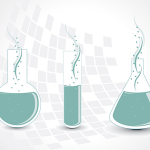"Vapes DON'T help people quit smoking normal cigarettes," the headlines blared this week, based on the results of another awful study. Let's examine the critical details most reporters overlooked.
bad science
Ordering diet soda significantly reduces the number of calories customers eat when they visit fast food restaurants, according to a recent study. The paper is an example of scientists reaching the right conclusion for the wrong reasons.
When science and money mix, science suffers. The pressure to publish and get grant money has corrupted researchers, who must "publish or perish" and get grants. This unholy alliance between the popular media and scholarly publications spawned the never-ending flow of sensationalistic results, especially those pertaining to human health effects.
The Food and Drug Administration recently issued draft guidelines for the regulation of stem cell therapy clinics. They have become part of a booming industry, with many of them run by those with the ethical makeup of snake oil salesmen of yesteryear.
We ve written before on scientific fraud and the problem of how easy it is to get papers with fake or manipulated data published. These studies that somehow make it through the publishing process can range from relatively harmless, such as the deliberately faked chocolate is good for weight loss study,


